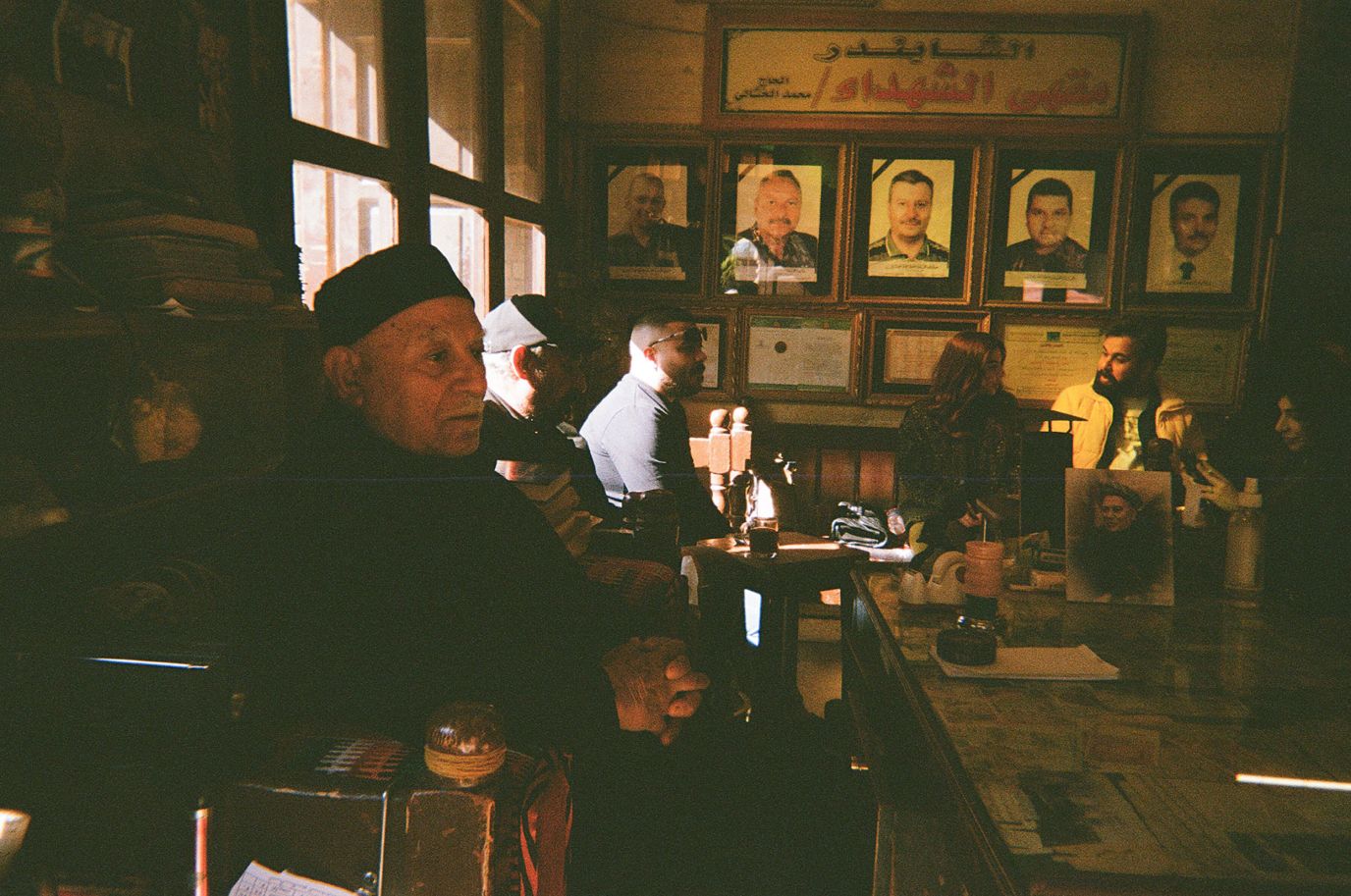
Ordinary people in Iraq were given disposable cameras. This is what they want you to see
Mohammed Al-Khashali is the owner of the century-old Shabandar Café in Baghdad. A terrorist explosion in 2007 on the cafe's street killed five of his children. Their faces are shown in pictures hanging on the wall.
Salam Karim/Daylight
Updated 12:44 AM EDT, Sun March 19, 2023
By Christina Zdanowicz, Mohammed Tawfeeq, Will Lanzoni and Brett Roegiers, CNN
A shopkeeper squeezes fresh orange juice. A man sits while his cat sunbathes on a motorcycle. Two girls play with their new umbrellas.
These street scenes paint a picture of how life has changed in Iraq in the 20 years since the United States invaded the country in 2003.
A year after the start of the Iraq War, Michael Itkoff — an American studying photography at the time — had an idea. He sent 20 disposable cameras to a photojournalist working in Iraq and asked for the cameras to be distributed to citizens.
He wanted to capture what life looked like through the eyes of Iraqis. The prompt was simple: Show the American public what you want them to see.
"We were seeking to counter some of the mass media depictions of the conflict that were painting with a broad brush this idea of the insurgency where every Iraqi could be the enemy," said Itkoff, who published the photos in Daylight, a visual storytelling platform and book publisher he co-founded.
This year he repeated the disposable camera experiment. And this time, the images show a return to normalcy despite the presence of old wounds.
"While the scenes of everyday life signal life has changed and come back to a more peaceful existence in the photos from Baghdad, some of the images from Falluja and Mosul paint a picture of visible scars and cities left in disrepair," he said.
CNN spoke with several of the Iraqis who took this year's photographs. Many of them expressed wanting to show their country in a new light.
"I want the world to have a different image of Iraq, rather than seeing scenes of destruction and killing," said Tariq Raheem, 50. "I want to send a message to the world that Iraqi people love peace and want to live in peace."
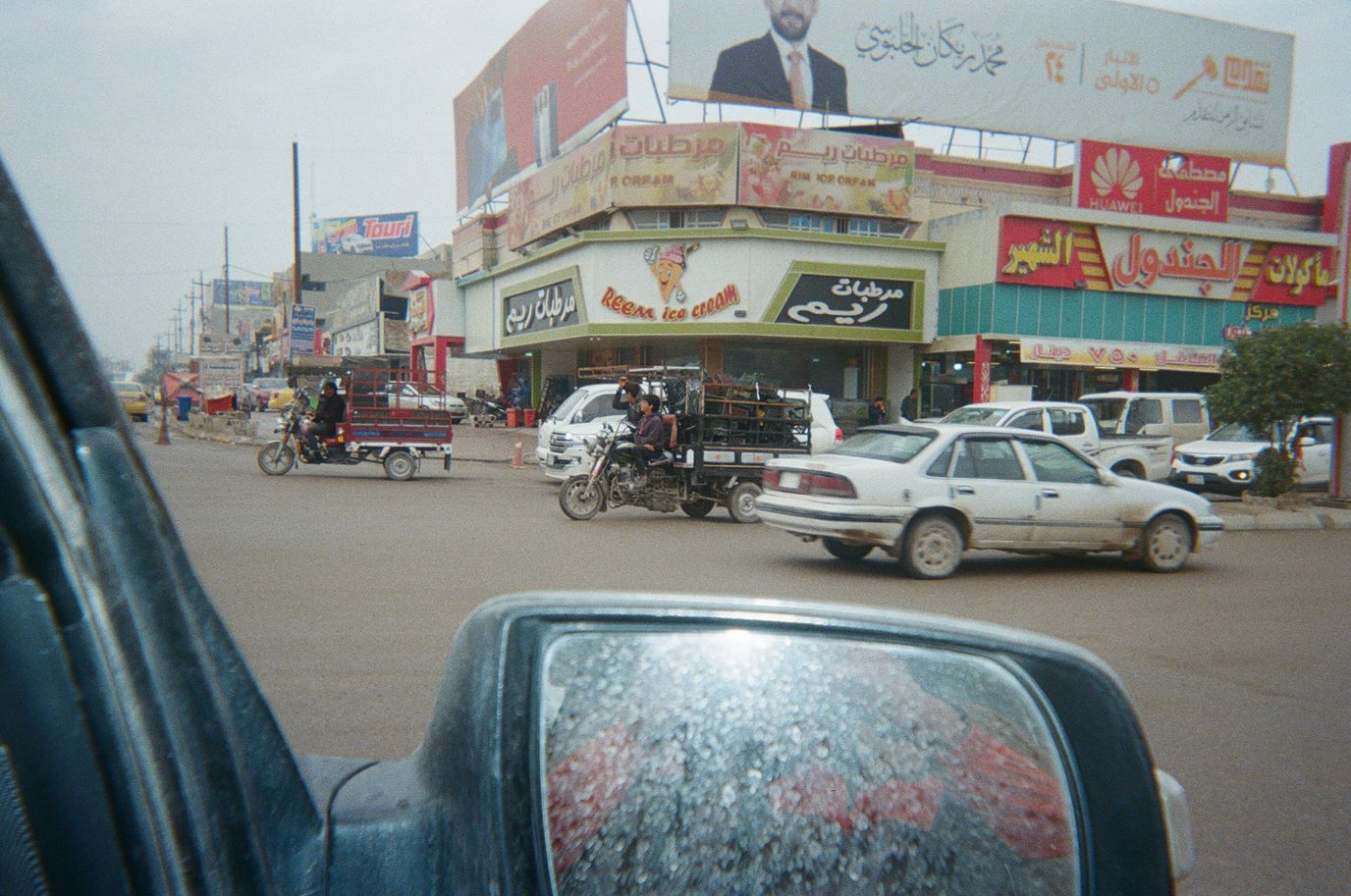
"I always go to this ice cream store with my family and friends," 19-year-old Omer Nawfel said of his photo of the Reem ice cream shop in Falluja. "It's a nice place for us to relax and enjoy our time together."
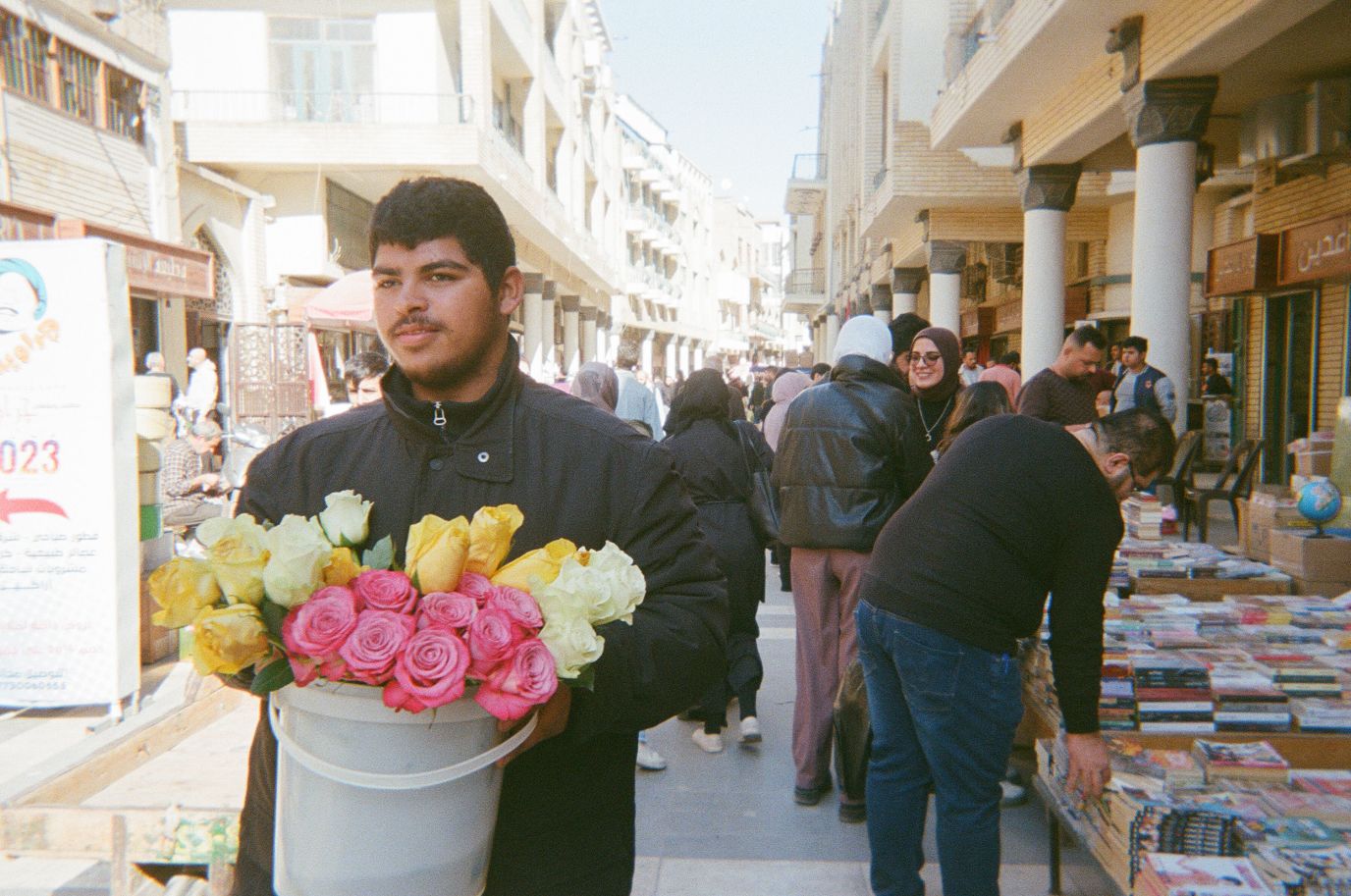
A man carries roses through al-Mutanabbi Street in central Baghdad in this photo taken by Salam Karim, a 30-year-old digital marketing freelancer who manages social media pages.
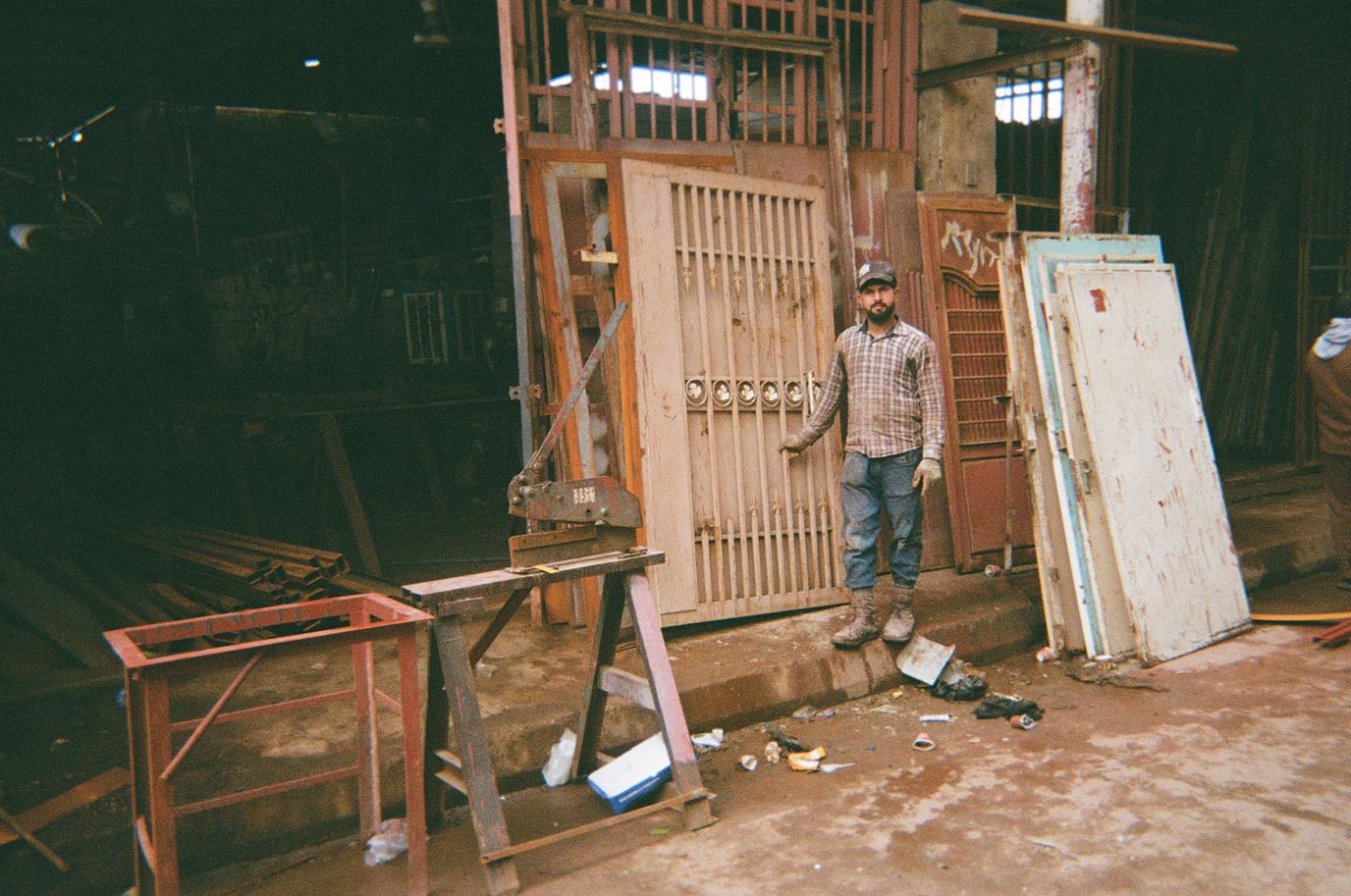
A blacksmith works at a market in downtown Falluja."I snapped those pictures just to show viewers a few corners of my city, as those pictures reflect the reality of how most people here work in simple jobs, from taxi drivers to blacksmiths," Nawfel said. "This is a reminder that this city and other cities in Iraq need to be rebuilt after they were destroyed during the occupation."
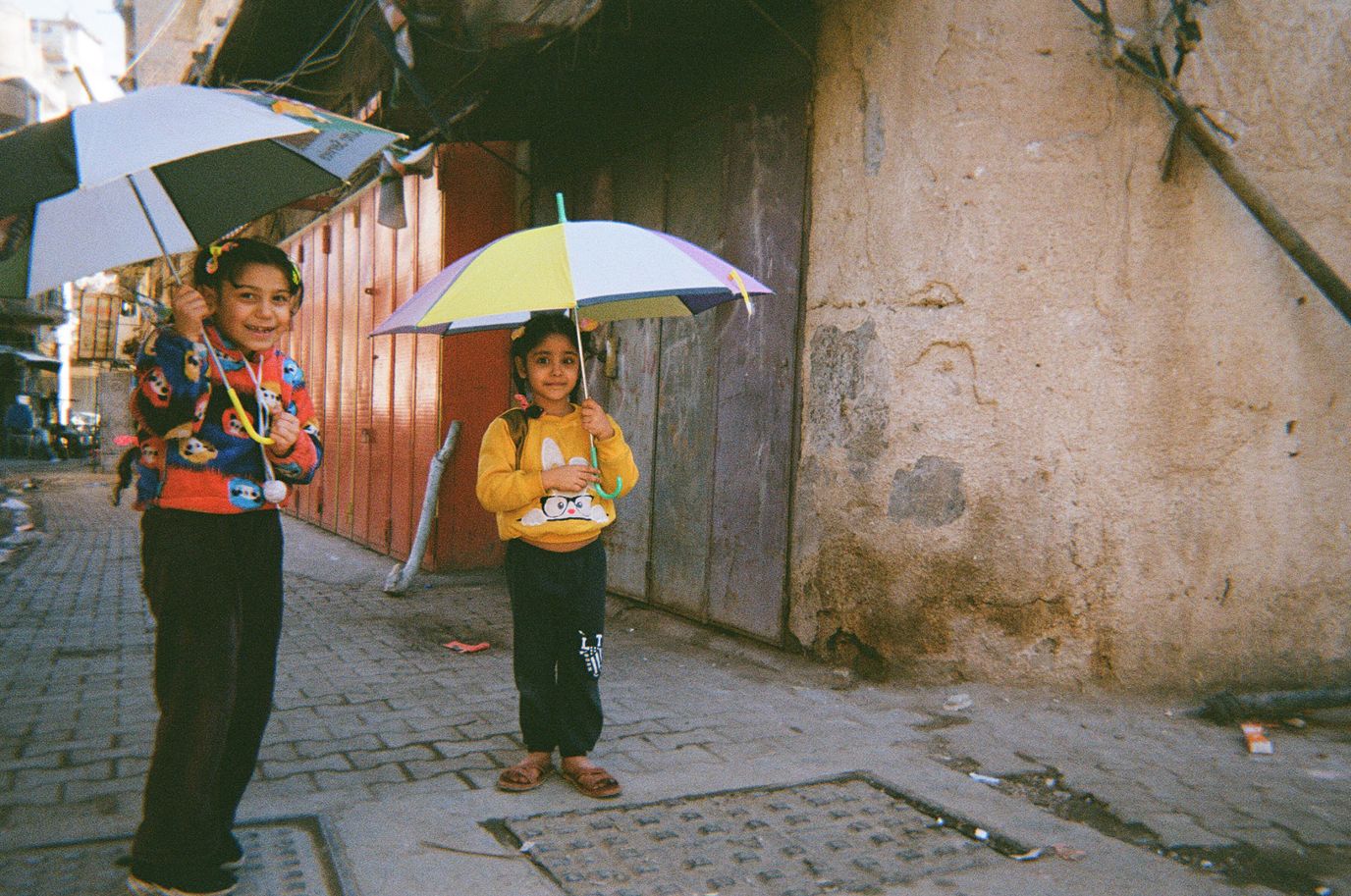
Ruqayya Ali Mahdi (right), 5, and her friend Ruqayya Aqil Farid, 8, play with their new umbrellas on an old, narrow street of Baghdad. "They were happy with the new umbrellas, but it did not rain that day," said Tariq Raheem, a retired military war photographer.
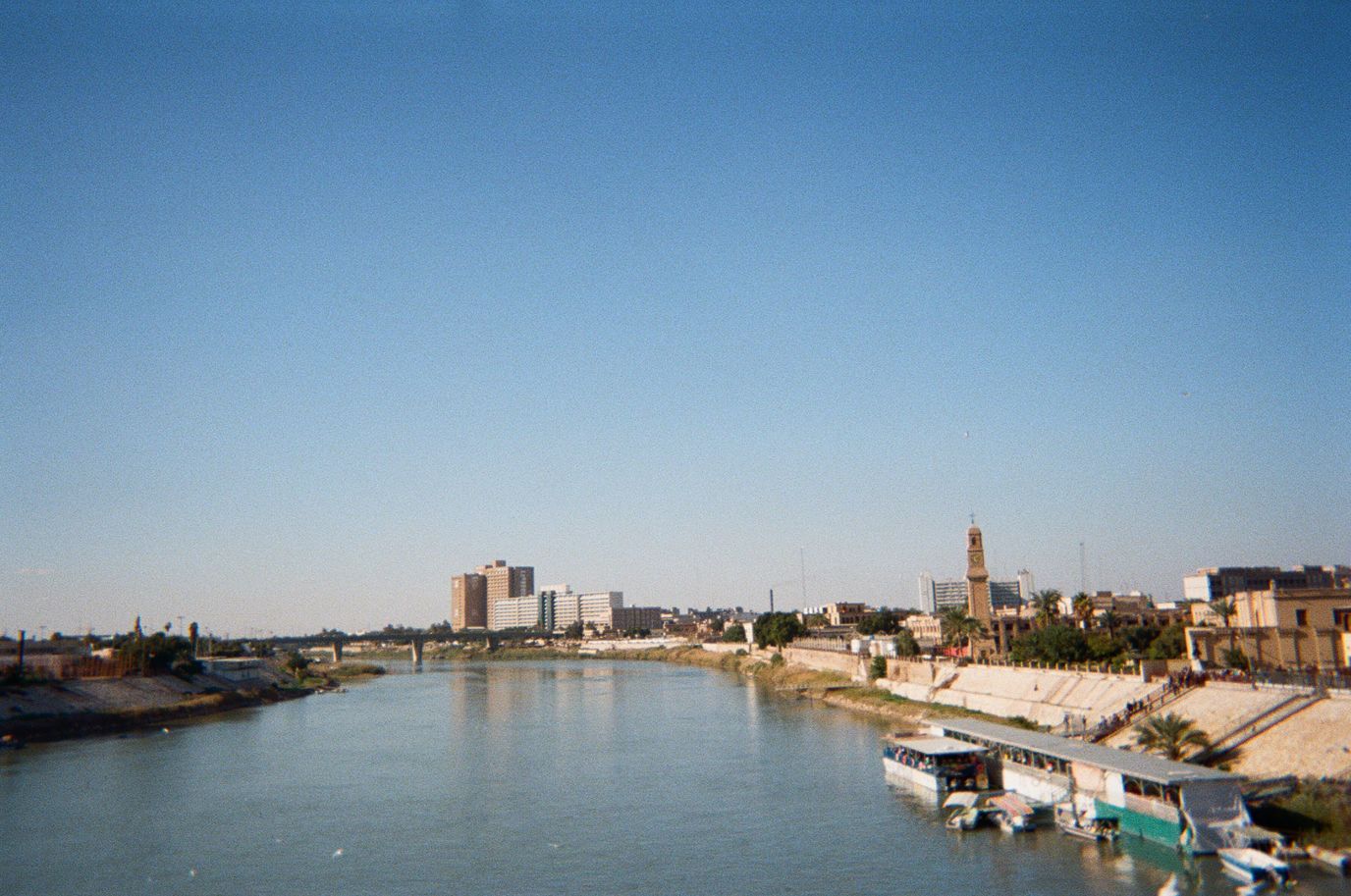
Raheem was outside of Iraq when the war started and unable to return for years.
"I was very worried about my family when I saw my country being brutally bombed, people getting killed, infrastructure being destroyed," he said.
But Baghdad is his home and he is drawn to places where he can witness its beauty and the kindness of its people, he says.
"The Tigris River represents life, hope and beauty in Baghdad," Raheem said. "Without the river, there would be no Baghdad."
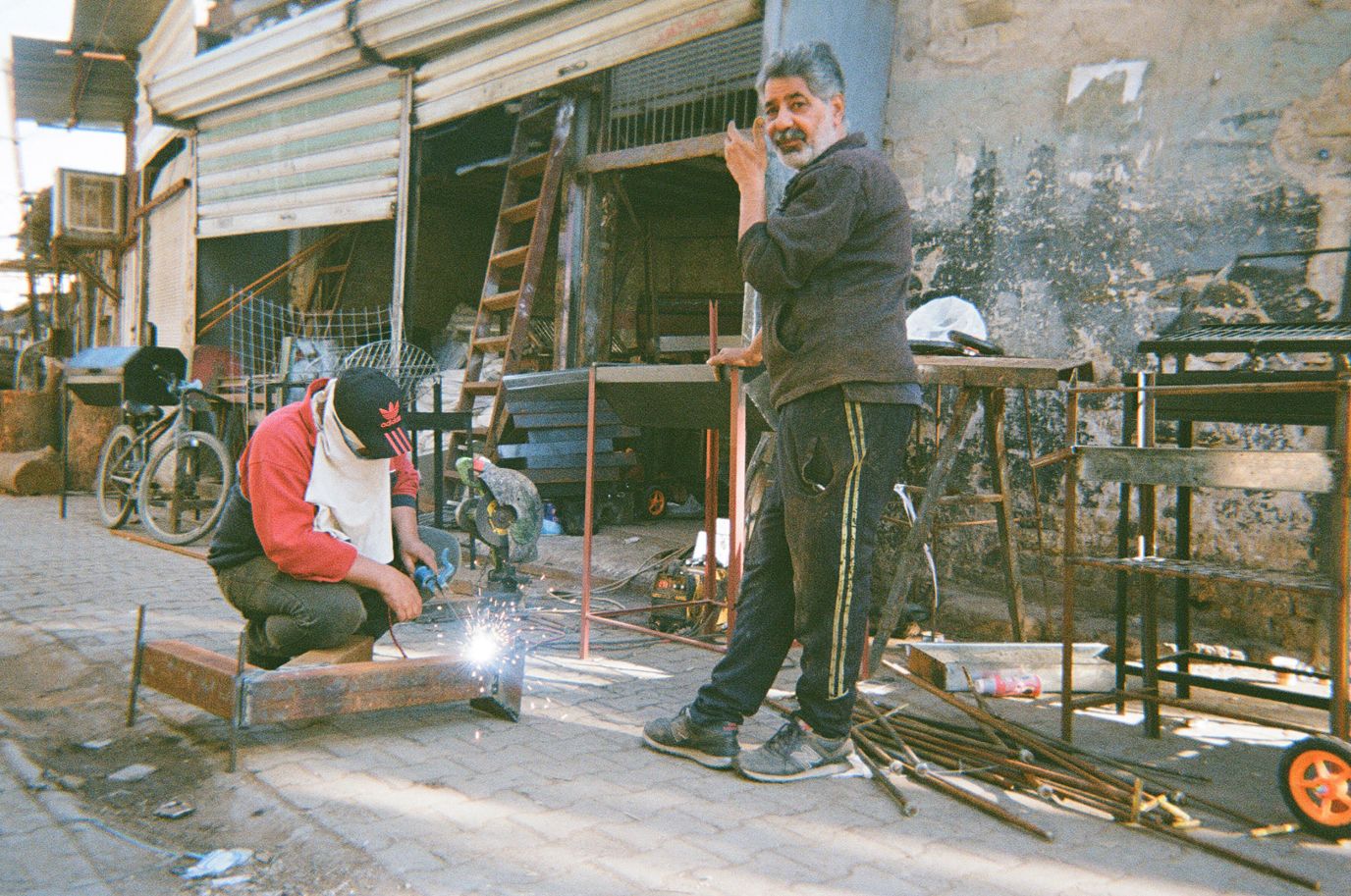
Zaid Kamel Abu Ali, 59, (right) looks up from his work as a blacksmith in Baghdad. "I have been working as a barbecue maker for 12 years," he told Raheem. "I enjoy my work a lot, sometimes I work even on weekends."
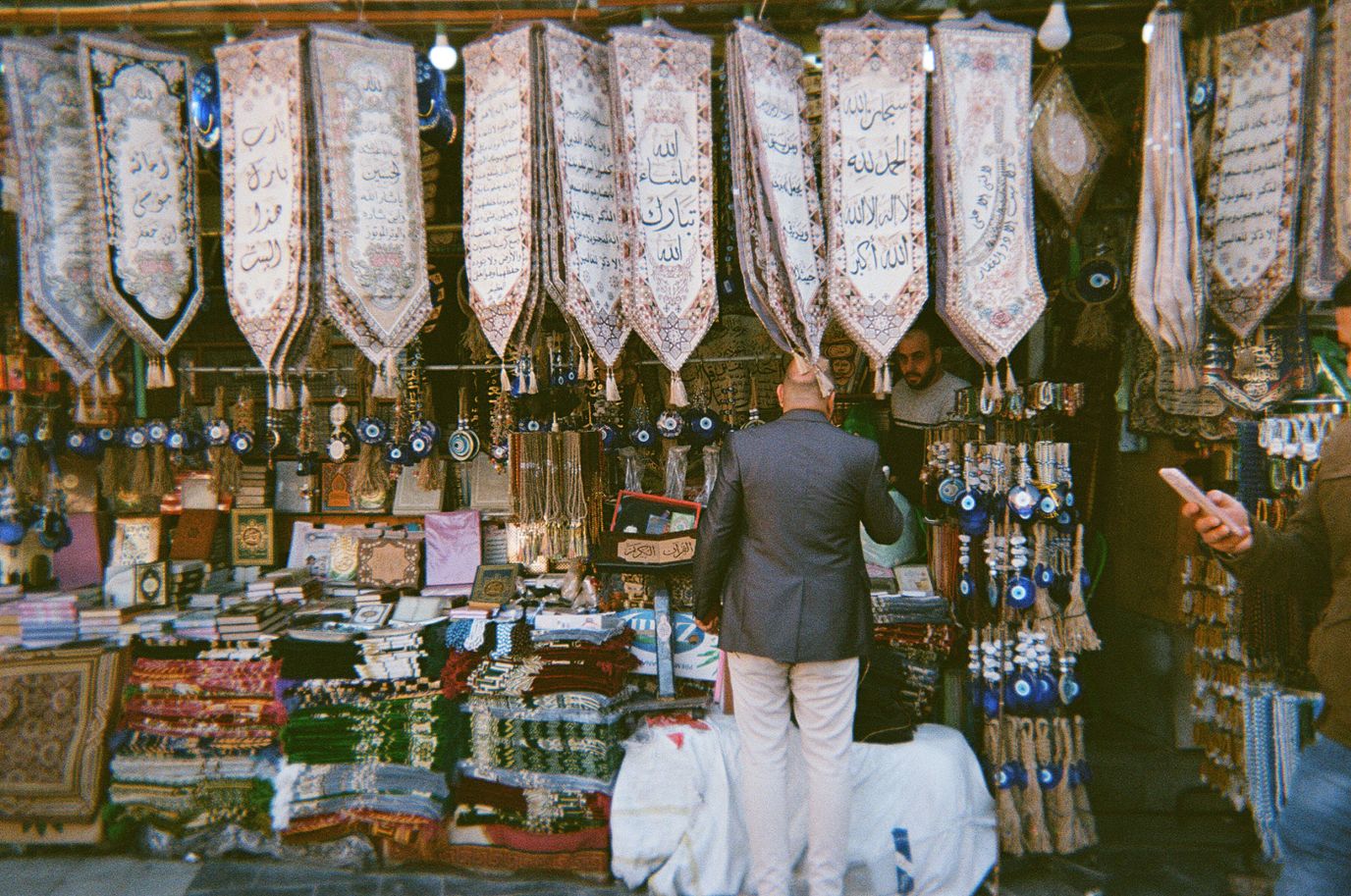
Ali Asaad Sabah, 30, has sold rosaries, prayer books, Qurans and printed Quranic verses in this shop since 2014. "I work 18 hours a day from 6 a.m. to 12 a.m.," he told photographer Wissam Hikmet. "During Hajj days when there are tens of thousands of pilgrims and from different parts of the world, the shop remains open 24 hours."
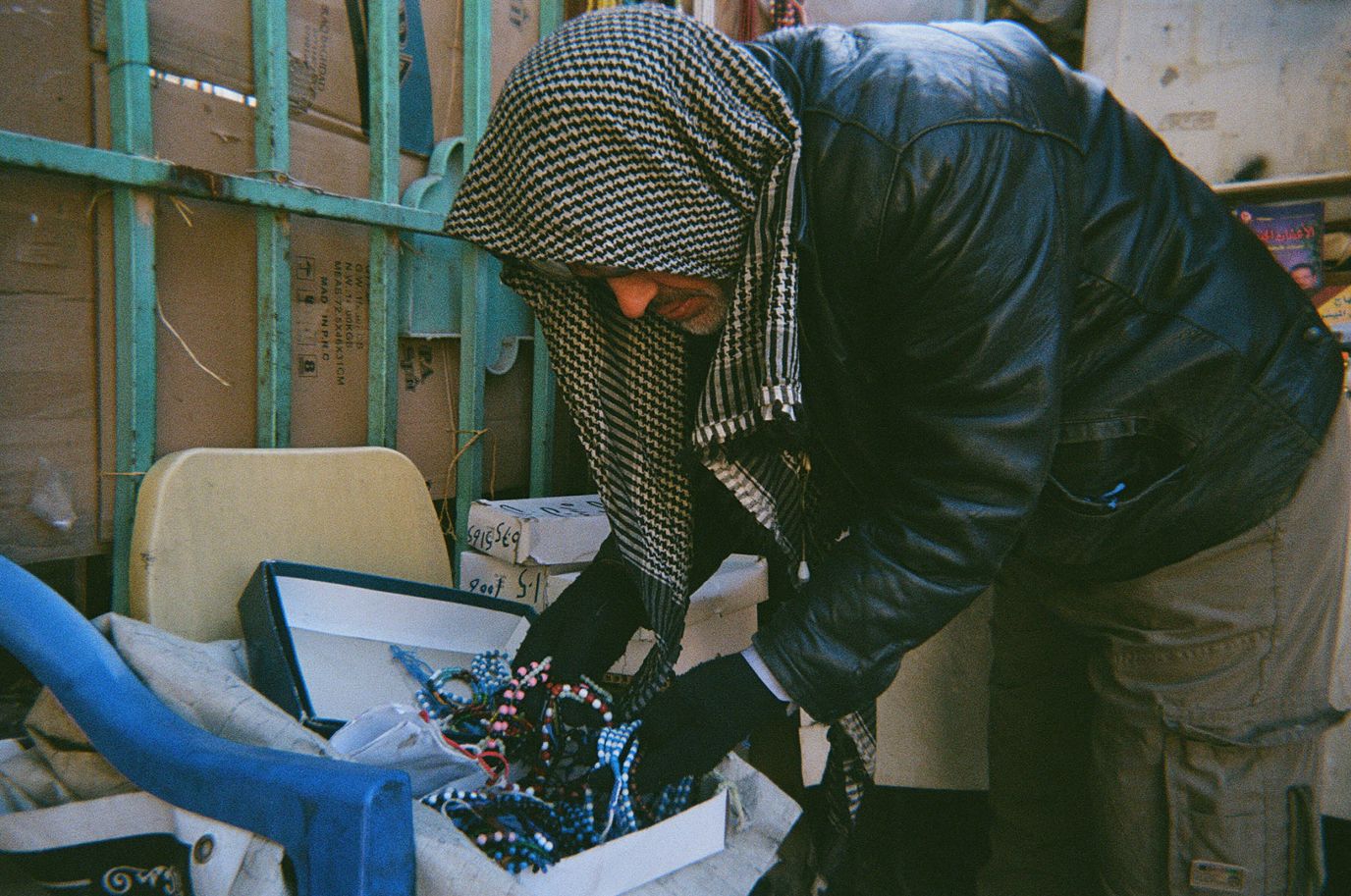
"The picture expresses the continued suffering of Iraqis, not caring about conditions of the elderly, which forces them to work in very simple jobs to put food on the table," Hikmet said of this image of a rosary seller.
Hikmet, 50, a grocery merchant for more than 30 years, struggles with the heartache and hardship his people face. "I hope that the world will pay attention to Iraqi people, feel their suffering and support them to fully restore their safety and their independence, so that they can enjoy security and stability," he said.
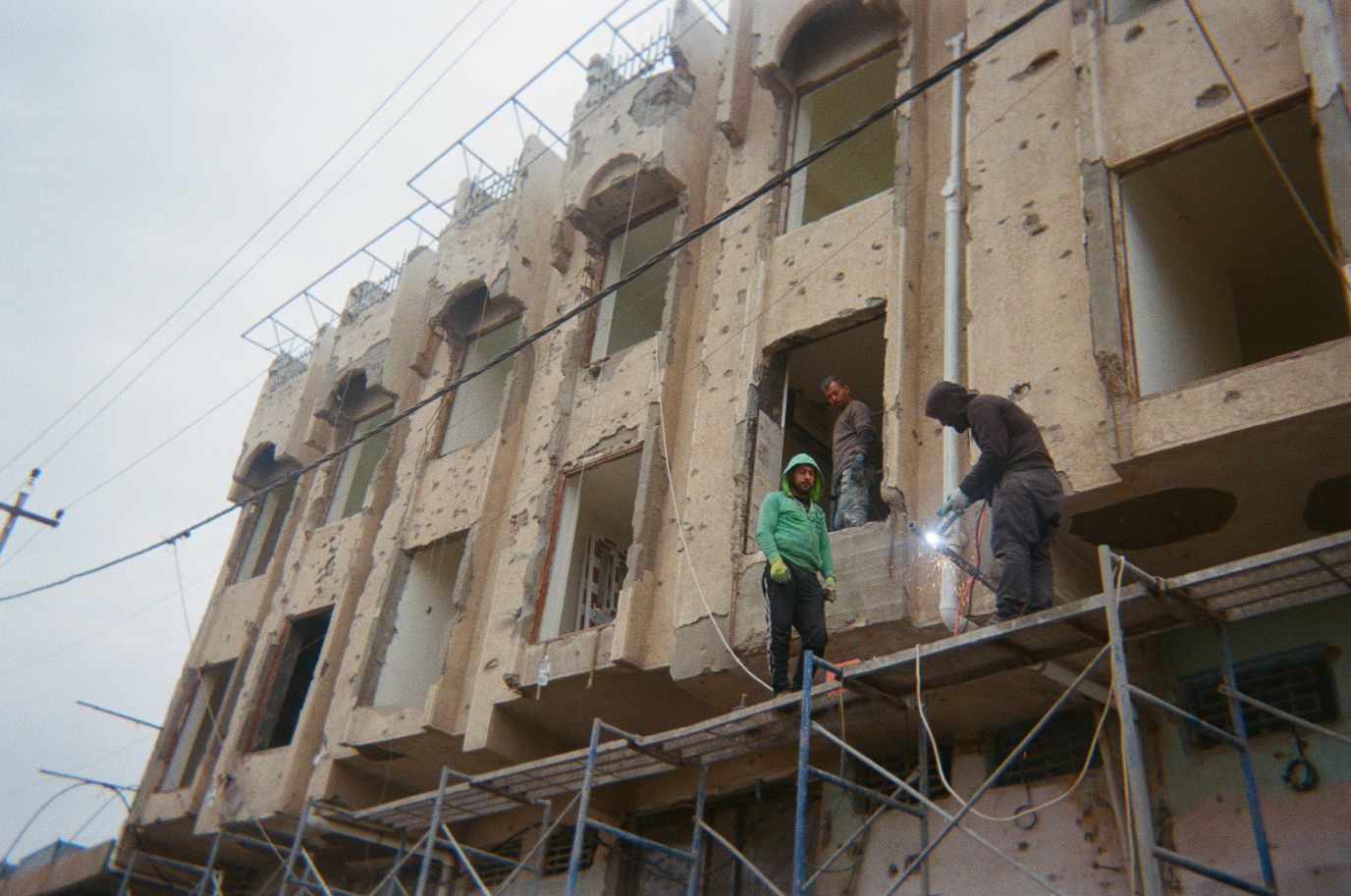
Men work to restore a building still riddled with bullet holes after being damaged in the Second Battle for Falluja in November 2004.
Nawfel, the photographer, was just 9 months old when this happened, but he said his family had to flee the city to escape the war. "I am 19 years old, so I don't really remember much about major events in Iraq," he said.
But he does remember the war against ISIS and the 2019 mass protests he participated in against unemployment, government corruption and the lack of basic services.
"My parents told me some stories about life before the US invasion to Iraq," he said. "The city of Falluja used to be more organized, much cleaner and most importantly it used to be safer. Things are getting better but very slowly."
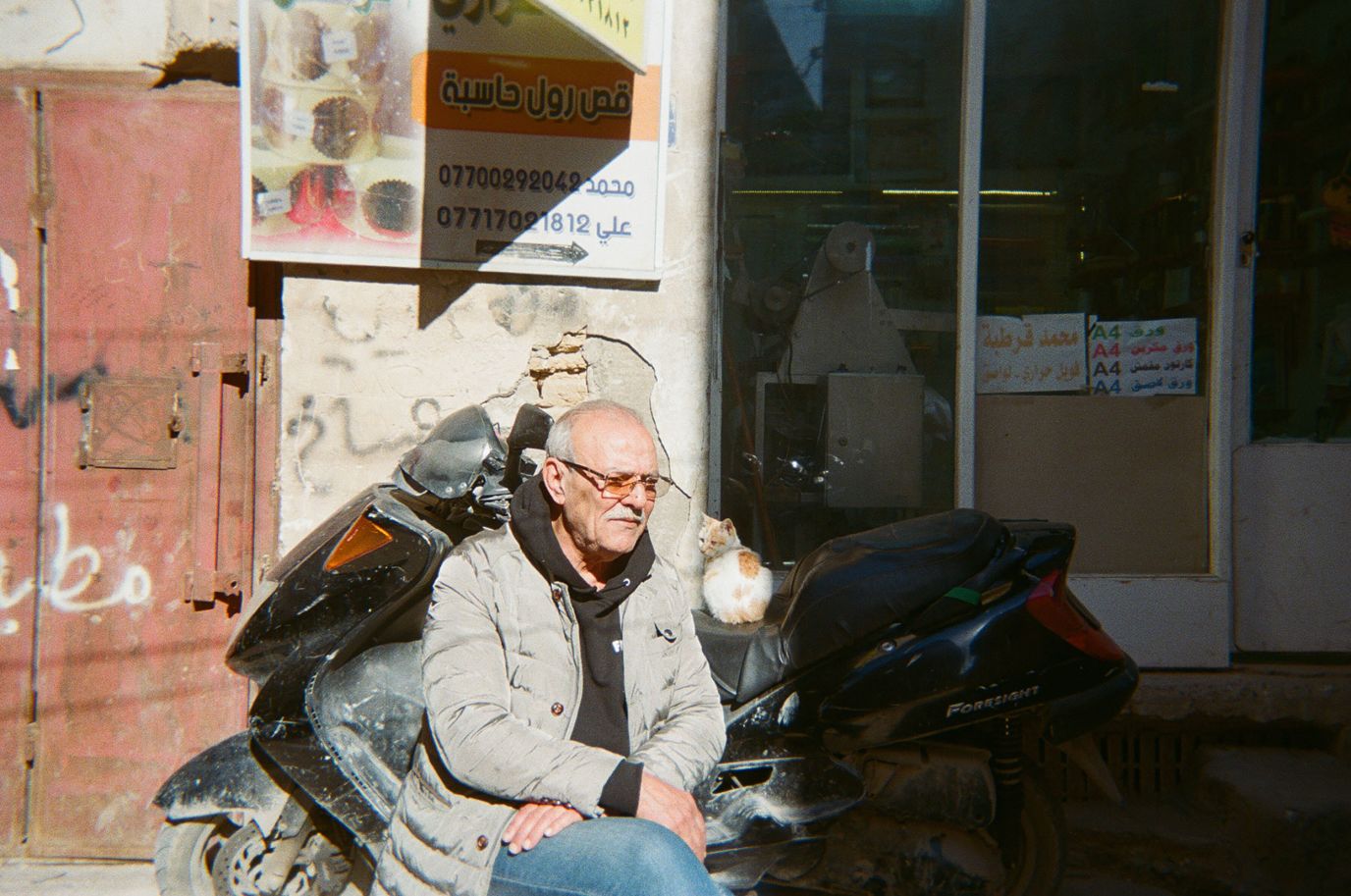
A man takes a break from work and enjoys the winter sunshine alongside his cat, Novi, who was named after a Chevrolet Nova, a muscle car the cat loves.
Salam says he enjoys searching for shared moments between people through his camera lens. "I see the laughter of an innocent child or a hardworking old man, and my mood changes completely by taking this kind of picture," he said.
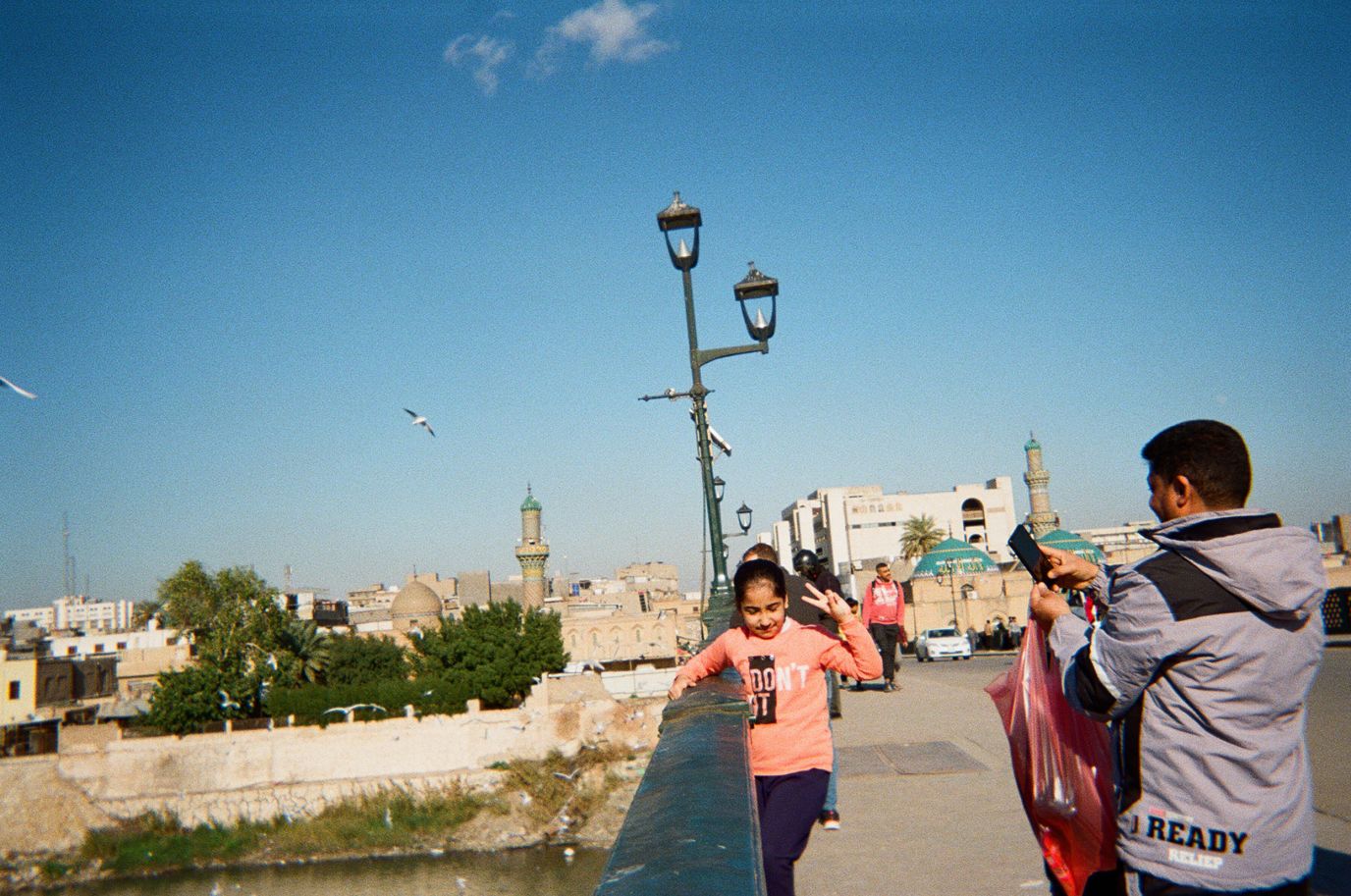
A father takes a picture of his daughter on the Martyrs' Bridge over the Tigris River, which divides the capital into two parts. It's where Iraqis usually snap beauty pictures of the city from both sides.
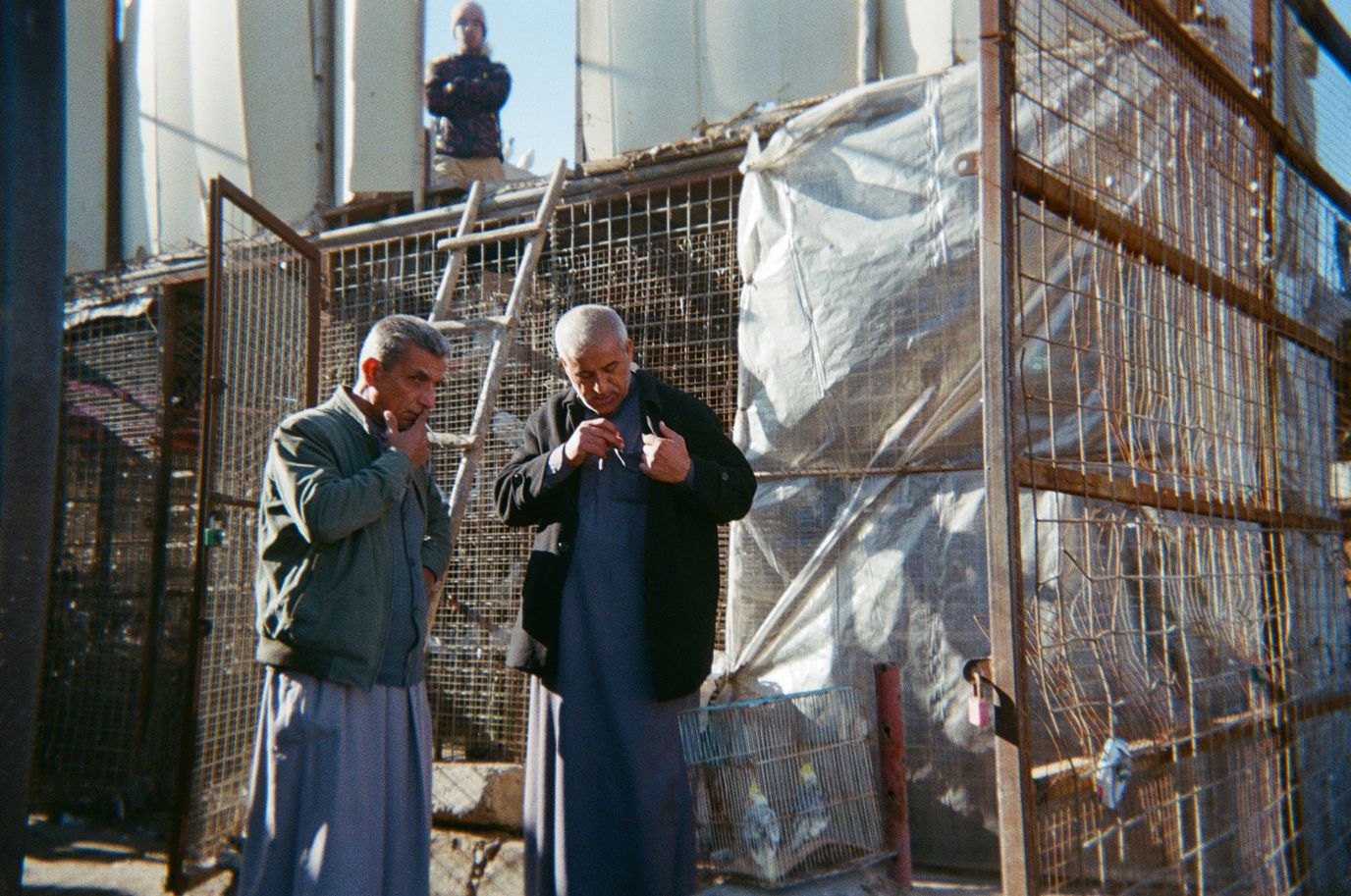
Birds are a common pet for families, Hikmet says. Buying and selling birds is a popular hobby, as seen here with these two men waiting for customers interested in cockatiels.
"I was born in those areas that still preserve their heritage, beautiful traditions and good people, and I visit them constantly with my family and friends, where I feel joy and bring back memories," Hikmet said.
![A man transports goods to a commercial market on a narrow alley in the Haydar Khana area of Baghdad. "It's my father's profession," Karim said. "He told me, 'This guy was just like me, working to carry things from merchants to customers.'"<br /><br />While Karim says he was fortunate because he comes from a well-to-do family, that doesn't mean is childhood in Iraq was rosy. He was 10 years old at the start of the US occupation, which went into his teen years.<br /><br />"Imagine that you are in the height of your adolescence, afraid to go out to live your life as a young teenager, and you are shocked that someone is trying to kill you [based] on your identity without knowing who you are," he said.](https://media.cnn.com/api/v1/images/stellar/prod/230316205928-14-iraq-us-invasion-anniversary-disposable-cameras.jpg?c=original&q=w_1376,c_fill)
A man transports goods to a commercial market on a narrow alley in the Haydar Khana area of Baghdad. "It's my father's profession," Karim said. "He told me, 'This guy was just like me, working to carry things from merchants to customers.'"
While Karim says he was fortunate because he comes from a well-to-do family, that doesn't mean is childhood in Iraq was rosy. He was 10 years old at the start of the US occupation, which went into his teen years.
"Imagine that you are in the height of your adolescence, afraid to go out to live your life as a young teenager, and you are shocked that someone is trying to kill you [based] on your identity without knowing who you are," he said.
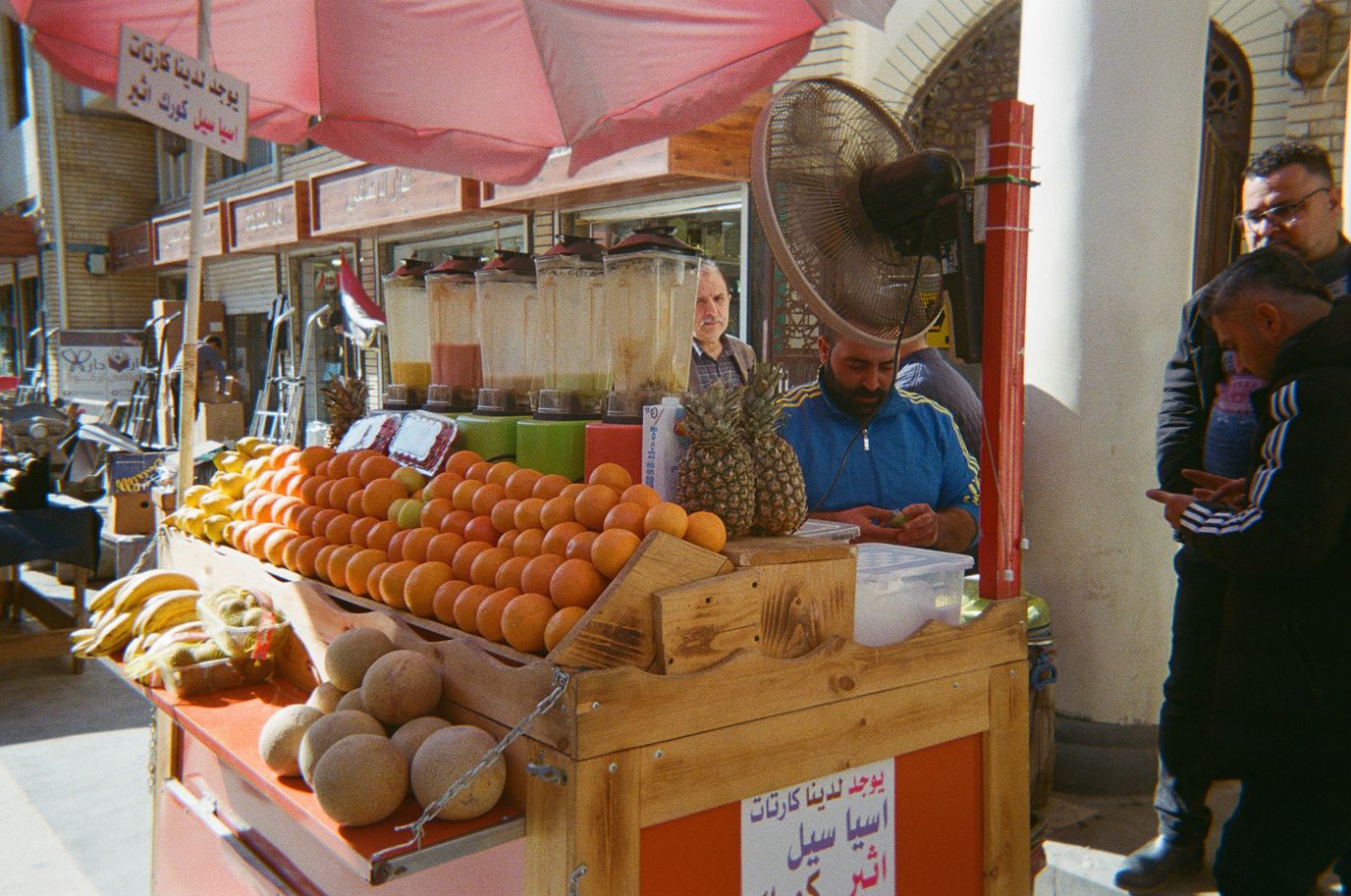
A street vendor sells fresh juice on al-Mutanabbi Street whether it's hot or cold out.
"I have always made sure that my pictures carry a spirit and convey a lot of people's lives, heritage and everything that is authentic," said Karim, the photographer.
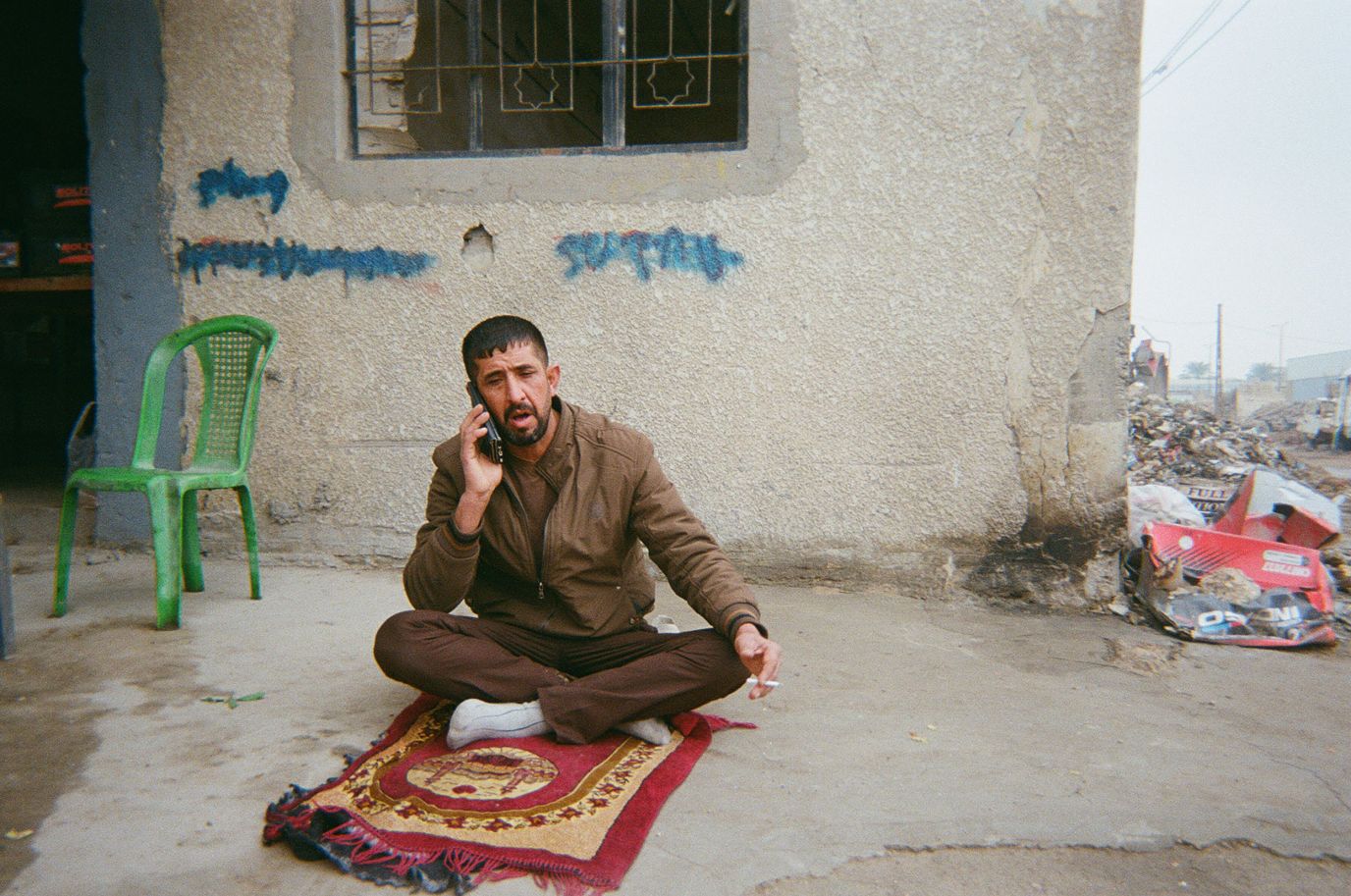
Taxi driver and father of four Muhammad Akram Saleh, 44, waits for his car to be repaired by a mechanic in Falluja. "While I am waiting ... I spend my time praying anywhere," he told Nawfel. "The difficulties of life continue, but I always overcome them."
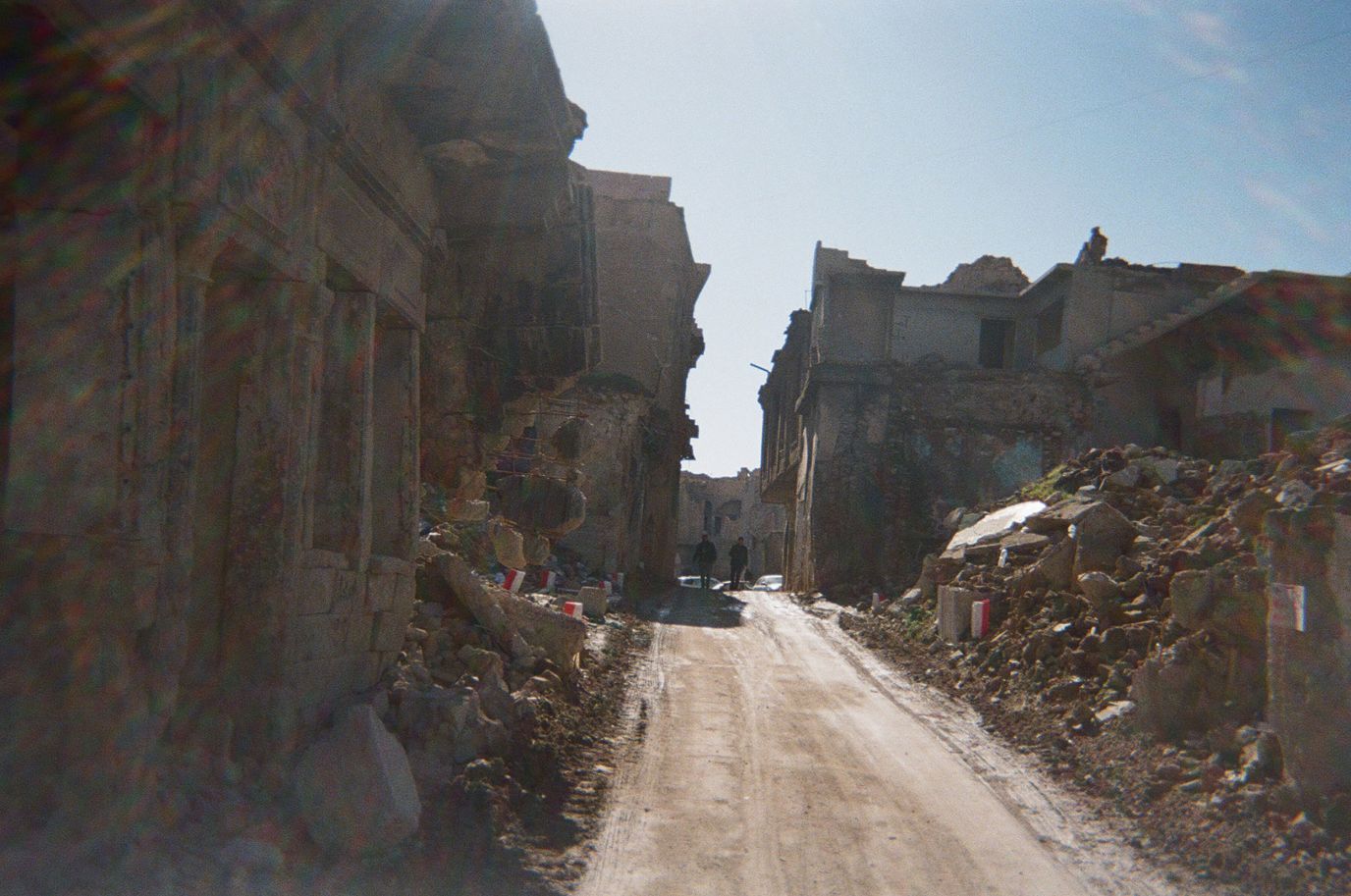
This used to be a busy commercial street for carpenters in the al-Maydan area of Mosul. It became the site of the last ISIS battle in the city, which lasted from October 2016 until July 2017.
"I had to drop out of school because of the bad conditions immediately after the 2017 war (against ISIS), and I had to work constantly," said 22-year-old Ahmed Faisal, a self-employed construction worker. "Also, despite improving my skills as a photographer, I could not find a job that helped me improve my skills."
The past 20 years have brought instability to Faisal's family, he says. They were dispersed because of illness and a lack of job opportunities in the area. His father was forced to work multiple jobs in various skills to make ends meet.